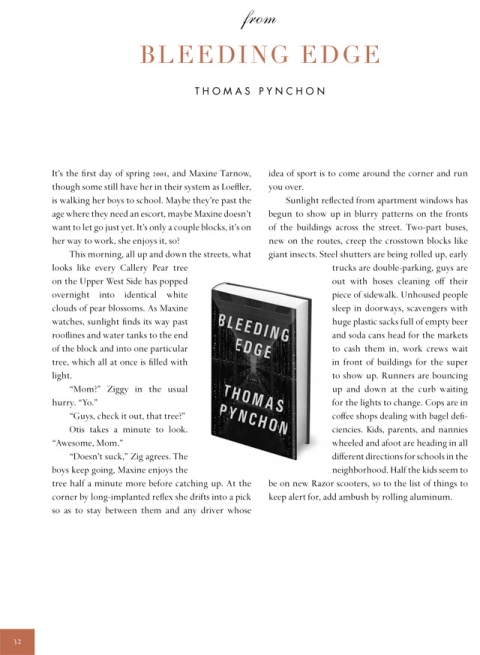Alfred Hitchcock made so many timeless films, but Spellbound, alas, hasn’t held up quite so comfortably. Most of the problem has to do with its theme: psychoanalysis, which enjoyed a trendy moment in the mid-forties and may have attained enough relevance at the time to drive a plot, but now seems a rather weak engine. That era’s therapy craze swept up picture’s producer, old-Hollywood titan David O. Selznick, with such force that he personally asked the director to take it on as a subject. Hitchcock grudgingly agreed, setting the production gears turning on Spellbound. Selznick arranged for his own therapist to both act as the movie’s technical adviser and to cause Hitchcock a number of on-set headaches. So if Spellbound seems faintly un-Hitchcockian, we can chalk it up partly to Selznick’s psychoanalytic zeal, but some of the credit must also go to Salvador Dalí.
Hired to craft a dream sequence, the Spanish surrealist painter and filmmaker reportedly produced over twenty minutes of footage, four and a half minutes of which appear in the clip above. “I can’t make out just what sort of a place it was,” Gregory Peck mutters, reclined on the therapist’s couch, as the shot dissolves into his mind and into Dalí’s imagery. “It seemed to be a gambling house, but there weren’t any walls, just a lot of curtains with eyes painted on them. A man was walking around with a large pair of scissors, cutting all the drapes in half. And then a girl came in with hardly anything on and started walking around the gambling room, kissing everybody.” Surely those days offered no more ideal candidate for the job of realizing such a vision than Dalí. The lightly theremin-ed score comes from Miklós Rózsa, but Hitchcock didn’t like that either. Though the famously controlling auteur may have found his power compromised in its production, Spellbound does end up being a rare thing indeed in the history of cinema: dream sequences compelling enough not to put you to sleep.
Related Content:
Watch 20 Free Hitchcock Movies Online
Alfred Hitchcock Recalls Working with Salvador Dali on Spellbound
A Soft Self-Portrait of Salvador Dali, Narrated by the Great Orson Welles
A Tour Inside Salvador Dalí’s Labyrinthine Spanish Home
Colin Marshall hosts and produces Notebook on Cities and Culture and writes essays on literature, film, cities, Asia, and aesthetics. He’s at work on a book about Los Angeles, A Los Angeles Primer. Follow him on Twitter at @colinmarshall.


